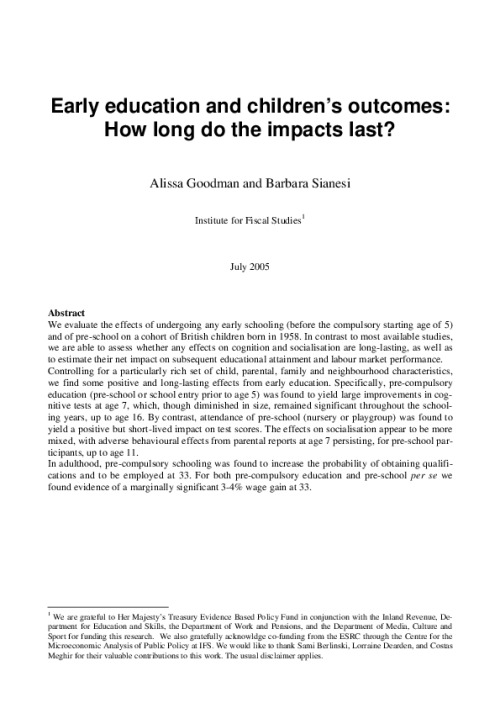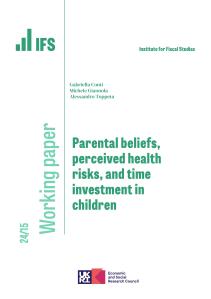We evaluate the effects of undergoing any early schooling (before the compulsory starting age of 5) and of pre-school on a cohort of British children born in 1958. In contrast to most available studies, we are able to assess whether any effects on cognition and socialisation are long-lasting, as well as to estimate their net impact on subsequent educational attainment and labour market performance. Controlling for a particularly rich set of child, parental, family and neighbourhood characteristics, we find some positive and long-lasting effects from early education. Specifically, pre-compulsory education (pre-school or school entry prior to age 5) was found to yield large improvements in cog-nitive tests at age 7, which, though diminished in size, remained significant throughout the school-ing years, up to age 16. By contrast, attendance of pre-school (nursery or playgroup) was found to yield a positive but short-lived impact on test scores. The effects on socialisation appear to be more mixed, with adverse behavioural effects from parental reports at age 7 persisting, for pre-school par-ticipants, up to age 11.
In adulthood, pre-compulsory schooling was found to increase the probability of obtaining qualifi-cations and to be employed at 33. For both pre-compulsory education and pre-school per se we found evidence of a marginally significant 3-4% wage gain at 33.










